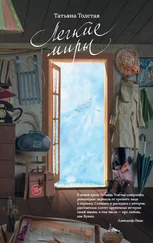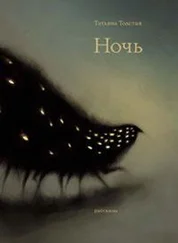To wit: I arrive. It’s April. I’m on my way to buy some fancy tea for which I acquired a taste after giving up cigarettes. As Polina Suslova—Dostoyevsky’s muse—said, “Tea is my everything—my lover, my friend, my raison d’être.” There is something to that.
Being a Taurus—as everyone knows, Tauruses like buying in bulk—I purchase enough tea to last me several years: four kilos, to be exact. To drink myself, to give away, to have some nicely wrapped New Year’s gifts handy. So I’m ready to head back, dragging my bale of dried Camellia sinensis leaves, when by the tea shop I spot a nice little boutique amiably located next door. Everything there is silk, just my size, and on sale. And if things are affordably priced, well of course you end up buying a ton: mountains of necessary things and oceans of unnecessary ones, for, as everyone also knows, sale prices intensify greed.
So here I am, buying a blouse the color of the Virgin Mary’s mantle. And a mint one, even though I already have a dress that same exact color—but how can one resist the color mint? And a third blouse that reminds me of eggplant at night. I’m also purchasing a thoroughly unnecessary jacket simply because it’s not just any shade of white, but… how should I describe it? It’s as if someone had eaten a boatload of steamed salmon and then gingerly breathed on the crème fraîche. That color.
I don’t have enough cash on me, it’s back at the hotel. All I had planned on buying was tea.
The boutique proprietor is very stylish and handsome; he is around eighty but still sprightly, silver haired, with a scarf around his neck. If there is a wind, or when autumn comes, the Frenchman is never at a loss, the Frenchman has a scarf. Things, of course, get a bit more complicated in winter—he has to raise his collar.
I say to the owner: Wait for me, I’ll go get cash. He’s all: Pas de problème, d’accord. I go with my eyes: I’ll be back, trust. He goes with his eyebrows: But of course.
I walk out with my head turned back 180 degrees: oh, the heaps of beautiful things that I’m leaving behind, unpurchased. That splatter-of-white-on-black dress, for instance.
I come back to the hotel, unload the tea, and go back out with a fist full of cash and a head full of dreams. I’m walking, dancing along the way, feeling all the feels: Paris! Paris! Boulevard Saint-Germain! The sun is shining wonderfully, as it often does in April. Look! There is a monsieur standing in the middle of the street, having a conversation with some other gentlemen. He’s holding a lovely long stick, which he keeps swinging around: waving it, drawing it up like a fishing pole, slashing left and right…. How strange, I say to myself, as I pass a few feet away from him, giving him a sunny April-in-Paris smile. How str—but I do not have a chance to finish my thought: with a swing of his stick, the monsieur knocks me down, and I fall slam-bang on the pavement of Boulevard Saint-Germain. My favorite street in Paris, by the way. But perhaps that’s irrelevant.
First I fall to my knees, skinning them against the pavement, and then I sprawl out, purse to the side, euros fanned out, iPad sliding out of my bag like a bar of chocolate. Parisians do not react.
In the early-morning fog,
Fuckers whack me with a log;
As I slump and curse my luck
No one seems to give a fuck.
At this point, of course, I start laughing hysterically: I’m spread-eagled, dying of laughter, when it finally dawns on me: the monsieur’s stick is white—he’s blind and so are his companions; they, too, I realize, are holding long white sticks in their hands. And through my laughter I can make out their conversation: “I think I knocked someone down,” the monsieur says, sounding pleased. And his friends, likewise tickled: “Oh!” As if to say, “Oh great, the morning is off to a good start. Perhaps the rest of the day will be good, too.”
I reassemble myself, dusting off and inspecting the damage, and limp to the nearest pharmacy, where they clean my wounds and stanch the blood. I look myself over in the mirror: my tattered tights are a good match with my dirty coat and its half-torn sleeve. The boutique proprietor does his best to suppress bewilderment when, with my blackened, bloodied hands, I hand over a pile of stained euros: She strolled out a lady and crawled back a tramp…. Well, times are tough.
One could say that this entire incident was pure chance. I, however, am inclined to see signs and symbols everywhere. Perhaps the universe was trying to tell me: “Watch where you’re going” or “You’ve fallen victim to blind passion.” Or something simpler: “Why on earth do you need all those blouses, especially when the blue one doesn’t even fit?” But nothing remotely similar ever happens to me in other cities, does it? This is Paris, a particular kind of place.
And then again, just a few days ago, I stopped over in Paris on my way elsewhere. Only a few hours: an overnight layover and then back on the road. Time was tight, so the demons swarmed around me without delay. I arrived late at night. Gracefully flitted into the Métro with my twenty-kilo suitcase. (Go ahead and ask me why I need so much stuff to visit a quiet resort!) Flitted in, I say, exhaled, and all seemed well. Riding along. The train well lit, lots of people around me.
Then suddenly I get a text message: “Boris, door is locked, bell isn’t working, call my cell. Asya.”
I don’t have friends named Boris, and Asyas have thus far stayed out of my life. Who are these people? Or maybe they’re not people? Perhaps the demons are communicating? Sending each other coded messages? Door, you say. Something wrong with the doors. I cheerfully text back: “Asya, you have the wrong number!” but no one responds. The demons are silent. When your demon is in charge, do not try to think consciously. Drift, wait, and obey.
My train was to arrive exactly by my hotel, with no transfers. I planned it that way to avoid any late-night vicissitudes.
So I’m sitting on the train, when suddenly, behind my back, from the space between the train cars, I hear a series of thunderclaps. They sound like small explosions. The train comes to a halt. Starts and stops. Slowly begins to move again. Then stops in a tunnel. Then moves again. The claps become louder and more frequent. People crouch and look at the dark windows with apprehension. On the panel over my head, emergency lights are illuminated. The conductor grumbles something indistinct over the PA system; the tourists start to get nervous: “What did he say?” “What did he say?” Then, finally, a horrendously loud rumble, the lights go out, the train slowly crawls to some platform, and the gentlepeople hastily exit. I run out with my twenty kilos. Where are we? I ask. I hear back from the platform: “Gare du Nord.”
Okay, Gare du Nord, no big deal—I can get a cab. I follow the arrows toward the exit. The crowds have mysteriously dissipated; I am alone in the half-dark train station. There are levels and escalators and more levels and more escalators and the signage is worse than what we have in Moscow, I shit you not. Arrows leading to dead ends, into blank walls, toward stairs without escalators. Finally I make my way to the top level: the arrows have lured me with promises of Parisian lights, of cozy taxis and friendly people.
Now, to exit the Métro, you need to use your ticket again, just as when you entered—you insert it into the gate for the doors to open to let you out. Tall plastic transparent doors. So I insert my ticket and I’m exiting with my suitcase dragging behind me when suddenly the doors slam shut. The photo sensor counted my suitcase as a second, unticketed passenger. The doors didn’t sever my arms—we live in humane times, after all, not everyone gets the guillotine. I’m holding on to my suitcase through the slit between the doors, and I can see it, but my access to it has been lost.
Читать дальше






